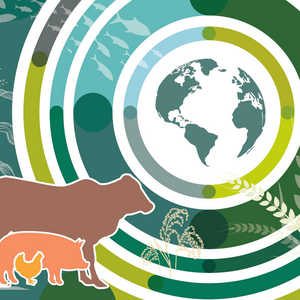The Canadian Food Inspection Agency (CFIA) announced the results of a battery of tests on sockeye salmon smolts seized from anti-fish farm activists last month. The tissue quality of the 48 samples originally submitted for testing was sufficient to allow CFIA's retesting to confirm the Infectious Salmon Anemia (ISA) virus was not present. All additional tests by CFIA were also negative.
"As the chief veterinarian of B.C. said today, it defies logic and common sense to assume that a few samples taken at random from the coast would indicate the presence of ISA when thousands of controlled tests of good-quality samples indicate no such thing," said Dr. Peter McKenzie, Mainstream Canada's fish health manager and professional veterinarian.
Since 2003, farmed salmon in B.C. have been tested by regulators for the ISA virus. Nearly 5,000 farmed salmon have been tested, and all were negative for the virus. Wild fish are also tested for the virus. In 2011 alone, nearly 1,200 samples of farmed and wild fish have been tested for the virus and have all come back negative. As well, in reaction to recent speculation that ISA might be in B.C. these 1,200 samples were retested by the B.C. Animal Health Centre and again showed no sign of the virus.
However, for weeks, while the CFIA conducted its investigation, the world was whipped into a frenzy through the malicious activities of a small group of anti-salmon farming activists, the same group who submitted the samples for testing. These activists have made it clear their mission is to shut down the B.C. salmon farming industry, at any cost. The activists' approach was emotional, fear-driven and ignored any good science which disagreed with their pre-conceived conclusions, Mainstream said.
The CFIA is currently doing an evaluation of the current provincial ISA surveillance program. Mainstream Canada has already given CFIA approval to release all our lab information related to ISA.
"It is important to our company and for B.C. wild salmon that we co-operate fully with CFIA and we support their ongoing investigation," said Fernando Villarroel, managing director of Mainstream Canada. "Fearmongering by anti-salmon farming activists does nothing to improve our understanding of farmed and wild salmon in B.C. We encourage CFIA to swiftly conclude their investigation."
Last year, as part of its ongoing commitment to continual improvement and sustainable aquaculture, Mainstream contributed funds for the Centre for Aquatic Health Sciences to upgrade existing laboratory facilities. The equipment has already been purchased and the lab has been upgraded to increase its diagnostic capacity for RT-PCR testing (the type of test used to look for the ISA virus) in B.C. Once it opens in 2012, the lab will be available for anyone in the province to use.
News that no Infectious Salmon Anemia (ISA) was detected in follow up testing of Pacific salmon samples by the Canadian Food Inspection Agency is welcome information for B.C.'s salmon farmers.
"This is a significant result for everyone involved: researchers, regulators, wild salmon advocates, salmon farmers and our coastal communities," said Mary Ellen Walling, Executive Director, B.C. Salmon Farmers Association (BCSFA), which represents salmon farm companies and those who supply services and supplies to the industry. "After seeing the original news distributed in such an inflammatory way, we hope this update will allay those concerns."
On October 17, Simon Fraser University hosted a press conference claiming that positive results had been found in two of 48 smolt samples tested for ISAv. This was contrary to every other previous test for ISA in BC with nearly 5,000 fish analyzed since 2003. They all showed negative for the virus.
In the follow up testing done by CFIA, all of those 48 smolts tested negative as did other samples collected by CFIA from researchers involved. Some samples were too degraded for testing to be completed.
The allegation that ISA had been found in BC was concerning to BC salmon farmers who, while confident that the extensive testing showed ISA is not on their farms, were worried about the possible effect of the virus which is harmful to Atlantic salmon. Pacific salmon are relatively immune to ISAv.
"This is a good example of why proper sampling, testing and reporting procedures are in place and should be followed: the unconfirmed report from Simon Fraser appeared to be designed to create as much hype as possible. This has cost significant resources in time and money in emergency follow-up while also potentially impacting international markets for our business," said Walling.
"We're pleased to see the thorough way CFIA is following up, but are dismayed at the way campaigners used this to create fear about our operations," said Walling.
The BCSFA understands that the investigation by the CFIA is continuing. The industry is providing any additional information to the CFIA as needed. In the meantime, our farmers continue in their regular, ongoing sampling/monitoring program.










